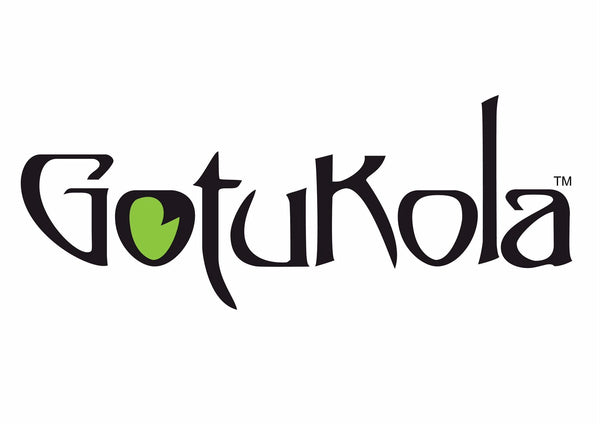The liver is a vital organ that plays a crucial role in detoxifying the body and maintaining overall health. However, environmental toxins, unhealthy lifestyle habits, and certain medical conditions can put a strain on the liver, causing liver damage or dysfunction. Gotu kola, also known as Centella Asiatica, is a plant that has been used in traditional medicine for centuries to treat a range of health conditions, including liver-related problems. In this article, we'll delve into the effects of gotu kola on liver health, including the potential benefits and risks associated with its use.
Traditional Uses of Gotu Kola in Liver Health
Gotu kola has been used in traditional medicine for centuries to treat liver disorders, including hepatitis, jaundice, and liver toxicity caused by exposure to chemicals or drugs. In traditional Ayurveda medicine, gotu kola is known as a liver tonic, believed to promote liver function and detoxification. Additionally, traditional Chinese medicine has used gotu kola to treat liver issues such as sluggish liver function, inflammation, and the accumulation of toxins.
Scientific Research on the Effects of Gotu Kola on Liver Health
While there is limited scientific research on the effects of gotu kola on liver health, some studies have shown promising results. Studies have shown that gotu kola may help reduce inflammation and oxidative stress in the liver, both of which are associated with the development of liver damage and disease. Additionally, gotu kola has been shown to have hepatoprotective properties, meaning it can help to protect the liver from damage caused by toxins and other harmful substances.
In one study involving rats with liver damage, the administration of gotu kola extract reduced liver enzymes, which are typically elevated in cases of liver disease or damage. Another study found that rats with fatty liver disease experienced a reduction in liver fat and inflammation after being treated with gotu kola extract.
While these studies are promising, more research is needed to fully understand the effects of gotu kola on liver health in humans.
Side Effects and Risks Associated with Gotu Kola Use
Gotu kola is generally considered safe when used in recommended doses, but it can cause side effects in some individuals. The most common side effects of gotu kola include upset stomach, nausea, and diarrhea. Additionally, gotu kola may interact with certain medications, including blood thinners, cholesterol-lowering medications, and sedatives.
It is important to speak with a healthcare professional before using gotu kola, especially if you have any underlying conditions or are taking any medications.
Tips for Using Gotu Kola for Liver Health
If you are interested in using gotu kola for liver health, there are some tips you can follow to ensure safe and effective use:
- Always speak with a healthcare professional before using gotu kola, especially if you have underlying health conditions or are taking any medications.
- Start with a low dose and gradually increase as needed.
- Consider using gotu kola in combination with other liver-supporting herbs, such as milk thistle or dandelion root.
- Choose a high-quality supplement from a reputable source.
- Avoid using gotu kola if you are pregnant, breastfeeding, or have a history of liver disease.
When it comes to our overall health and well-being, the liver plays a crucial role as it is responsible for detoxifying our body from harmful toxins. As such, it is essential to keep our liver healthy and functioning optimally. One of the natural remedies that have gained popularity in recent years is Gotu Kola, which is believed to promote liver health. In this article, we will explore the science behind Gotu Kola's benefits for liver health and why you should consider incorporating it into your daily routine.
What is Gotu Kola?
Gotu Kola, also known as Centella Asiatica, is an herb that grows in wetlands and marshy areas in the Asian region, including India, Indonesia, and China. It has been used for centuries in traditional medicine in these regions for its medicinal properties, including its ability to boost circulation, improve mental clarity, and manage skin conditions. The herb is rich in flavonoids, triterpenoids, and other beneficial compounds, which contribute to its health-promoting properties.
Gotu Kola Benefits for Liver Health
Studies have shown that Gotu Kola may help prevent liver damage caused by toxins, including alcohol, and support liver recovery. The herb stimulates liver and gallbladder function, leading to increased bile production and improved digestion. Additionally, Gotu Kola's anti-inflammatory properties help prevent inflammation and damage to liver cells. Given these benefits, the herb may be an effective natural remedy for managing liver disease and promoting liver health.
How to Incorporate Gotu Kola into Your Diet
Gotu Kola can be consumed in various forms, including supplements, tea, and tinctures. Supplements are available in capsule and tablet forms, and you can find tea made from dried Gotu Kola leaves in most health food stores. Tinctures are made by steeping the herb in alcohol, which extracts the beneficial compounds. You can add the tincture to water or juice for consumption. Given that raw Gotu Kola leaves may cause stomach irritation, it is advisable to consume the herb in its processed forms.
Precautions When Using Gotu Kola
While Gotu Kola is generally safe for consumption, it is advisable to take some precautions. The herb may interact with certain medications, including blood-thinning medications, diuretics, and anti-depressants, among others. It is essential to consult a healthcare provider before using Gotu Kola, especially if you are on medication. Additionally, pregnant and breastfeeding women should avoid the herb.
Final Thoughts
Gotu Kola is a natural remedy that is gaining popularity for its health-promoting properties, particularly its benefits for liver health. Overall, it is an excellent addition to your dietary regimen as it promotes healthy digestion, prevents liver damage, and supports liver recovery. However, it is essential to take precautions when using the herb, particularly for those on medication, pregnant or breastfeeding mothers. As such, it is advisable to consult your healthcare provider before incorporating Gotu Kola into your routine.
Conclusion
The research on Gotu Kola's impact on liver health is vast and complex. While more clinical studies still need to be done to fully understand the correlation between this herb and improved liver function, it does have some promising benefits. It could prove particularly beneficial for those suffering from cirrhosis or hepatitis as a means of improving symptoms and potentially helping with recovery. As always, however, consultation with a medical professional should be sought out before trying any herbal remedies and engaging in any self-medication. Additionally, because of its effects on blood thinning, individuals already taking medication for thinning or clotting their blood should discuss potential interactions with their physician before consuming Gotu Kola. This herbal remedy may provide an array of potential health benefits including support for sleep, mental focus, skin health, and even boosting immune system responses. As exciting research continues around Gotu Kola's many applications as a health supplement, keeping an eye on advancements in this area could be paramount to discovering all the potential uses of this herbal supplement.
Check out for more interesting topics about Gotukola @gotukola.

